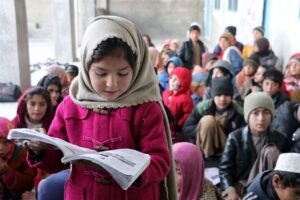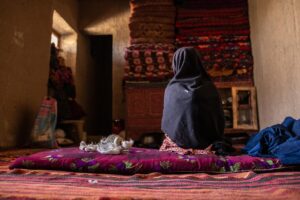KABUL (SW) – Restrictions on Afghan migrants in Iran, one of the largest host countries for Afghan citizens, are increasingly creating serious challenges for these individuals with children being the hardest hit.
Fahima Azizi, a 16-year-old who moved to Iran with her family a year ago, says that due to educational barriers, she is forced to work alongside her younger siblings. “There is no permission for Afghan children to receive an education in Iran. It’s not just me; my siblings, who were in seventh and eighth grades in Afghanistan, can’t study here either. Unfortunately, we have to work,” she explained.
Zubair Aryan Afghan, a 20-year-old migrant in Iran, experienced the hardships of exile years ago, which compelled him to drop out of school and work at the age of 17. He had dreams of higher education but found that the challenges of migration and his family’s economic struggles forced him into labour.
“We have to work; if we don’t, we’ll go hungry. I’ve been working for three years and couldn’t continue my studies due to economic difficulties,” he said.
Families of Afghan migrants in Iran report that low wages and economic hardships compel them to make their children work to meet basic needs.
Zahra Sadat, an Afghan migrant and mother of four, voices her concern for her children’s future due to the lack of educational opportunities. “Costs are high, so both we and our children have to work. Iranians have computers and insurance; we migrants have nothing. That’s why both men and women, as well as children, must work to earn a loaf of bread,” she told Salam Watandar.
Despite these challenges, Samiullah Ebrahimi, spokesperson for the de-facto Ministry of Labour and Social Affairs of the Islamic Emirate claims that “In the past year, we returned nearly 2,700 children who were expelled from foreign countries, primarily Iran, to their families.”
This comes as recent reports from Iranian media reveal that of the 3,200 child labourers recently identified in the country, 85% are Afghan children.






